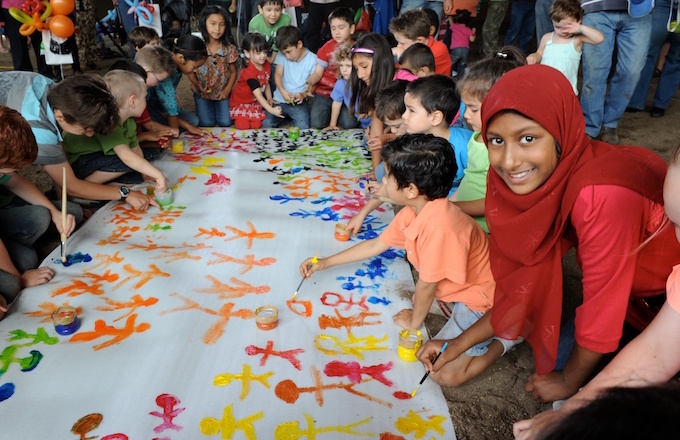What is Social Awareness?
Social awareness is defined by the Collaborative for Academic, Social, and Emotional Learning (CASEL) as, “the ability to take the perspective of and empathize with others, including those from diverse backgrounds and cultures. [It is] the ability to understand social and ethical norms for behavior and to recognize family, school, and community resources and supports.” A developed sense of social awareness allows for successful interactions with others based on reactions and modifications that take place during the interaction.
What Skills are Associated with Social Awareness?
Based on the above definition, there are several skills that are associated with social awareness. In order to demonstrate this aspect of Social Emotional Learning, students need to develop awareness and abilities related to each of the following skills:
- Perspective-taking: Perspective-taking involves the ability to look at and understand a situation or concept from an alternate point of view.
- Empathy: Empathy is defined as the ability to understand and share the feelings of another. A common saying associated with empathy is to “put yourself in his/her shoes.”
- Appreciating diversity: Students should learn the value in recognizing that each individual is unique and that differences in race, creed, gender, sexual orientation, or belief should be celebrated rather than ignored or argued.
- Respect for others: Respect requires students to view the world with an open mind and to ask questions rather than make judgments. Despite their differences, students are asked to treat each other with kindness and curiosity rather than hatred or prejudice.
Why Teach Social Awareness?
In addition to the identified skills above, social awareness also relies on students’ abilities to demonstrate other Social Emotional skills. Self-awareness, self-management, and relationship skills are also important components in building social awareness. As discussed in the Social Emotional Learning (SEL) Overview, SEL skills build on each other and should be taught explicitly and in a connected, interdisciplinary manner. Although oftentimes considered part of the hidden curriculum, these social emotional skills are important for students to develop if they are going to be successful in school, employment, or social environments.
How Does This Connect to Landmark’s Teaching Principles™?
The language complexities of the skills associated with social awareness can make these skills challenging for students with language-based learning differences to master. Therefore, explicit instruction with modeling and feedback is necessary to break the skills down and allow students to understand and apply their knowledge and awareness. The necessity of breaking the skills down relates to Landmark’s third Teaching Principle™, “Micro-Unit and Structure Tasks.” This structured approach to teaching, modeling, and practicing foundational skills in isolation allows students the opportunity to better implement strategies to be successful in social situations. For the full text of the Landmark Teaching Principles™, including “Micro-Unit and Structure Tasks,” click here.



